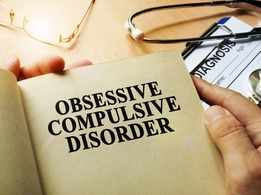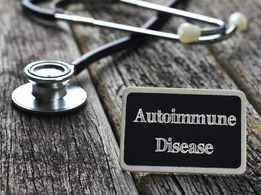01/8Should women delay conception after getting the COVID-19 vaccine?
)

Growing vaccination rates are effective in slowing down the spread of novel coronavirus disease but are considered to be risky for vulnerable groups such as elderlies, pregnant women and children.
Newer researches have also showcased that pregnant women, who may or may not have a high risk of COVID-19 are much more likely to die from the disease or suffer from symptoms months after fighting the infection. Now, the World Health Organisation too, which was earlier opposed to the use of COVID vaccines during pregnancy now recommends women to get their vaccine shot as soon as possible.
02/8Pregnancy and COVID-19 vaccines: How safe are they?
)

However, the line is still divided on the safety of COVID vaccines for pregnant women. Growing hesitancy, unavailability of a safe vaccine compromises the health of millions of women of childbearing age across the world and creates a dilemma for them. Not just that, the lack of proper evidence has also divided health officials worldwide. So much so, many couples (and doctors) recommend delaying conception till the time a vaccine shot isn't delivered safely.
At the same time, those who have been administered the vaccine right now have also been asked to avoid pregnancy for at least 8 weeks time.
But, should you really delay getting pregnant until a vaccine comes? Or, would it be safe to get a vaccine dose right now?
We try and answer some of the queries regarding COVID vaccines and fertility.
03/8Can COVID vaccines cause infertility? Why are pregnant women not prioritized right now?
)

Despite all the rumours floating around the internet, COVID-19 vaccines cannot lead to infertility or miscarriage in women who may be expecting or the ones who may be planning to.
Most vaccines being administered right now make use of a weakened strain of the actual virus or use modern technologies to equip the immune system to fight the virus- hence, in no way do they harm the reproductive system and whenever it comes, it won’t cause any malfunction, disruptions or infertility.
04/8Are vaccines safe for use by pregnant women?
)

Since a long time, pregnant women have been advised to opt for vaccines and it is considered safe for use. COVID vaccines, unlike other traditional vaccines, has been devised on an experimental basis and there's no credible research to back its benefits for pregnant women. Neither does it mean, it is not safe for use.
The only thing that divides a lot of medical authorities from prioritizing pregnant women to get doses of the COVID vaccine right now is the lack of clear information. Since pregnancy can compromise immunity, chances are, the vaccine may react differently, be less efficient or put a woman at the risk of developing unusual side-effects, which may be difficult to deal with.
05/8Would it be ideal to wait to conceive after vaccination?
)

Pregnant women can still opt to get vaccinated, but it all depends on their choice.
If the time of your future baby’s birth does not bother you, or you can afford to delay conception, it would be ideal to wait and get the vaccine dose when you can, without experiencing ethical or personal doubts.
Delaying conception should also be considered if you have pre-existing conditions which make you more vulnerable to catching COVID. Getting a vaccine would ultimately be a step to safeguard your health and make you better capable of taking care of your pregnancy. Waiting out 6-8 weeks, after getting both the doses of the vaccine would be a good call.
However, do remember that ultimately, it is a personal decision to make and it is a decision which concerns your own health.
06/8Are there any specific vaccines which should not be used?
)

Again, there is no substantial proof yet to prove which of the currently used vaccines may be better suited, or less harmful for pregnant women.
The major vaccines being used right now include Moderna Therapeutics Inc., Oxford-Astrazeneca (Covishield), Pfizer-BionTech, Covaxin, Sinopharm vaccine.
Different vaccine may carry different risks, depending on their type. While Covaxin and Covishield are traditional vaccines, made like influenza vaccines, Moderna and Pfizer make use of mRNA technology, which may be a little riskier. Both the companies are also currently running trials on pregnant women, so further research will be required to conclude which vaccine is safer or not.
07/8What happens if you choose to wait?
)

A vaccine prevents the virus from attacking your body and causing complications.
Remember, if you don’t get vaccinated, or choose not to get it as a personal choice, you will still be at the risk of infection. Being pregnant would also mean you have a higher than usual risk.
Studies are divided to show if pregnant women may or may not transfer the virus or antibodies to their babies.
08/8Maintain 6-feet distance and take precautions
)

Even so, remember to continue following precautions including hand hygiene, limiting your exposure, quarantining upon contact, masking up.
However, do remember to prioritize getting other vaccines needed during pregnancy and not delay them. Getting proper flu shots may also work to lessen the severity of COVID, as many experts now believe.
At last, do remember all the vaccines right now are experimental. There may or may not be a risk of side-effects and complications. Booking an appointment with your obstetricians and paediatricians about whether to get the vaccine would be a good call.









































































![[New!] Level 4 - 30 minute tempo fat-burning!
[New!] Level 4 - 30 minute tempo fat-burning!](https://static.toiimg.com/thumb/79327298.cms?width=147&height=86)











closecomments
SIGN IN WITH
FacebookGoogleEmail